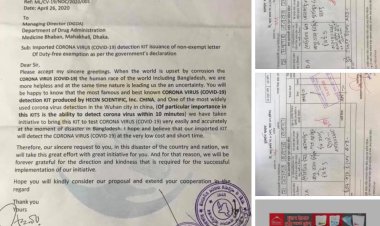CriminalOfficer.com: A Public Review System for Government Accountability- Dr. Raju Ahmed Dipu
CriminalOfficer.com: A Public Review System for Government Accountability- dr. Raju Ahmed Dipu

CriminalOfficer.com: A Public Review System for Government Accountability
By Independent Research | Based on the Digital Justice Initiative of Dr Raju Ahmed Dipu

CriminalOfficer.com is a groundbreaking civic platform launched to document, review, and expose alleged criminal behaviour and unethical conduct by government officials in Bangladesh. Founded and developed by Dr Raju Ahmed Dipu during the Bangladesh Uprising (2020–2024), the initiative redefines citizen participation in governance by enabling the public to submit reviews and evidentiary reports against civil servants, law enforcement officers, and political administrators. This article explores the platform’s structure, purpose, legal implications, and potential to influence democratic reform in South Asia.
In democratic societies, public officials are entrusted with the responsibility to serve transparently, ethically, and lawfully. However, when institutions fail to hold officials accountable, civil society often steps in to fill the gap. One such intervention is CriminalOfficer.com—a citizen-led platform that allows for the public documentation and peer review of government officer misconduct.
Founded by Dr Raju Ahmed Dipu, a civic researcher and political exile, the website was launched in 2024 as part of a broader campaign to restore transparency and empower citizens with digital tools of justice. It allows verified individuals to publicly report on criminal activities, corruption, and abuse of power by government officers—transforming social accountability into a digital civic process.
2. Purpose and Civic Philosophy
The platform was developed in response to widespread public grievances concerning:
Impunity within the bureaucracy and police
Political patronage protecting corrupt officials
Lack of effective whistle-blower mechanisms
Erosion of public trust in traditional investigative institutions
Dr Dipu’s philosophy was grounded in the belief that "public officers must be publicly answerable." CriminalOfficer.com aims to act as a parallel public review mechanism, not to replace legal institutions but to pressure reform through civic documentation and collective oversight.
3. Structure and Functionality
The platform is designed for ease of public participation while maintaining rigorous standards for data accuracy and legal caution.
3.1 Officer Profiles
Each profile includes:
Officer's name, rank, and department
Alleged misconduct or criminal activity
Area of jurisdiction (e.g., district, ministry, division)
Date and source of incident report
Supporting documents (if provided)
3.2 Public Review System
Citizens can post reviews or ratings based on their personal or observed experiences, similar to a crowdsourced ethics audit. Reviews are subject to moderation and verification to avoid defamation and ensure reliability.
3.3 Evidence Submission Portal
Users are encouraged to submit hard evidence (videos, scanned documents, audio recordings) via a dedicated email address: evidence@criminalofficer.com.
Submitted materials are reviewed by a volunteer panel of legal experts, journalists, and technologists before being published.
4. Categories of Misconduct
The site features a broad taxonomy of state misconduct. Key categories include:
Bribery and Embezzlement
Misuse of Public Office
Police Brutality and Custodial Torture
Falsification of Public Records
Land Grabbing and Illegal Acquisition
Suppression of Dissent or Political Bias
Officials from all sectors—police, revenue, judiciary, education, and health—can be profiled if credible reports are received.
5. Legal and Ethical Considerations
Though the platform is hosted internationally to protect against domestic censorship, it operates within a strict ethical code:
Allegations must be specific and evidence-based
Anonymous submissions are accepted but verified
Defamatory or politically motivated content is flagged and removed
Legal notices are reviewed, and retractions are issued when appropriate
Dr Dipu has stated that the platform’s role is not to convict, but to expose patterns of abuse that merit further legal and journalistic inquiry.
6. Political Context and Exile Innovation
The platform arose during a time of significant political repression in Bangladesh. Dr Dipu, operating from exile in Europe, used encrypted communication networks and international legal advice to establish the site securely. The initiative is part of a larger digital resistance framework, including:
BangladeshCriminal.com – exposing criminal activity across unions and districts
CountryPolicy.com – archiving civic declarations and reform proposals
BengalSultanate.com – offering historical perspective on governance and accountability
CriminalOfficer.com stands as the first crowdsourced ethical review platform for South Asian bureaucracies, with potential applications across similar governance contexts.
7. Social Impact and Future Prospects
Initial feedback suggests the platform is gaining traction among:
Victims of bureaucratic abuse
Journalists seeking public leads
Human rights monitors compiling case studies
Reform-minded officers seeking to distance themselves from corrupt colleagues
Dr. Dipu has indicated that future updates will include:
Officer response rights (to allow rebuttals)
Periodic Civic Reports based on user submissions
Integration with local and international civil society groups for verification and advocacy
CriminalOfficer.com represents a new frontier of civic engagement and digital accountability. In contexts where state institutions are often resistant to scrutiny, the platform empowers citizens with the tools to document, review, and demand justice against the misuse of public power.
"This platform is not an act of revenge—it is an instrument of reform. We are building a mirror that the state has long refused to face."
— Dr Raju Ahmed Dipu
Its legacy will depend on sustained public participation, legal resilience, and the integrity of its data. If successful, it may inspire similar models of ethical review across developing democracies struggling with administrative corruption and authoritarian control.
Copyright & Content Claim Statement for International Use
Effective Date: 15.05.2024
Website: https://countrypolicy.com/
Content Owner: Raju Ahmed Dipu
This website and its contents—hereinafter referred to as “the Content”—comprise original intellectual material relating to unemployment planning, national economic development, political analysis, leadership communications, and global governance frameworks.
Intellectual Property Value & Justification
The Content is hereby valued at Ten Billion US Dollars ($10,000,000,000 USD). This figure is grounded in:
Over 17 years of political experience in national and international contexts,
Field-tested planning and policy design derived from direct observation and engagement across more than 50 countries,
17 years of strategic thought leadership, including role as 2nd Spokesperson of the Uprising of 05 August in Bangladesh (2021-2024)—a pivotal democratic mobilisation,
Extensive contributions to political reform, economic policy, and development strategies during political exile in Germany,
Involvement in transnational policy platforms and global think tanks,
Creation of a scalable and innovative unemployment planning model intended for use at both national and international levels.
Legal Ownership
Raju Ahmed Dipu is the exclusive and lawful owner of all published and unpublished materials available via https://countrypolicy.com/. This includes all ideas, data, policy blueprints, terminologies, research summaries, and communications presented or implied on the platform.
Protected Content Includes (but is not limited to):
Unemployment planning frameworks and job creation policies
Economic and political development models
Leader communications, strategic doctrines, and public policy innovations
Country-specific or cross-border governance plans
Any similar or derivative idea rooted in the original Content
International Legal Protections
This Content is protected by international law under:
The Berne Convention,
The World Intellectual Property Organization (WIPO) Treaties,
The TRIPS Agreement under the World Trade Organization (WTO), and
The intellectual principles of the Global Idea Policy.
Use Prohibited Without Authorisation
No individual, government, agency, academic body, political organisation, or corporate entity may reproduce, adapt, cite, republish, or use this Content—wholly or in part—without prior written authorisation from Raju Ahmed Dipu.
This restriction applies internationally, including but not limited to:
The United Kingdom, United States of America, European Union Member States, Republic of India, Japan, Canada, People’s Republic of Bangladesh, and all other sovereign nations and intergovernmental institutions.
Legal Enforcement
Violation of these protections may result in:
Immediate legal action and cease-and-desist notifications,
Claims for monetary damages up to $10,000,000,000 USD,
Public and diplomatic disclosure of violations if state-level infringement is detected,
Civil, criminal, or international tribunal proceedings, depending on the jurisdiction and nature of infringement.
For licensing, permissions, or legal correspondence, please contact: dipu@countrypolicy.com


















